
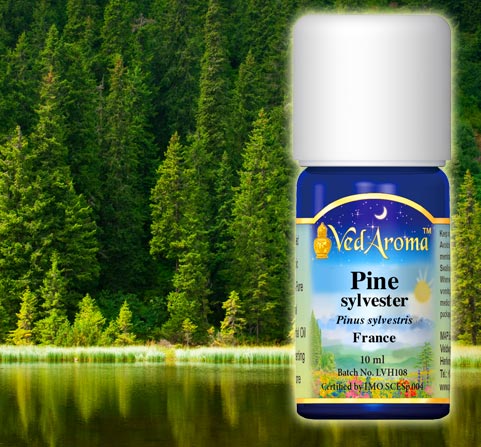
Medicinal Uses
According to the laws governing the sale of essential oils, there are very strict guidelines concerning what vendors of essential oils can claim about the medicinal properties of the products that they sell. While we are happy to abide by these guidelines, we would like to point out that authors of books on aromatherapy are not subject to the same constraints, and there are many books available which have a wealth of information about essential oils and their known effects in all areas of life.
Refer to Power of Essential Oils booklet.
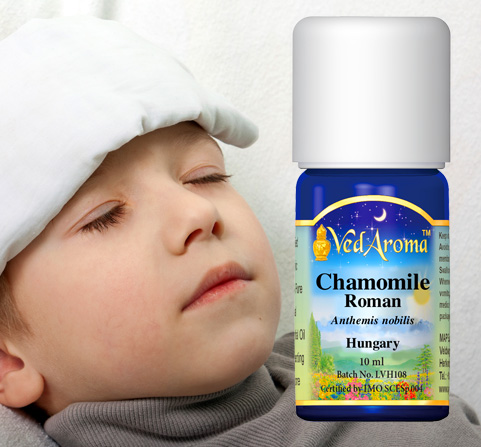
Compress
A compress is a clean, damp, folded cloth that has been infused with essential oils and is then applied to the problem area. It employs either warm or cool water, depending on its use. Fill a small bowl with water and add 2–5 drops of essential oil. Stir briskly, soak the cloth, wring, and apply. Repeat this procedure as needed.
Chamomile is one of many oils that can be used for a compress.
Refer to Power of Essential Oils booklet.
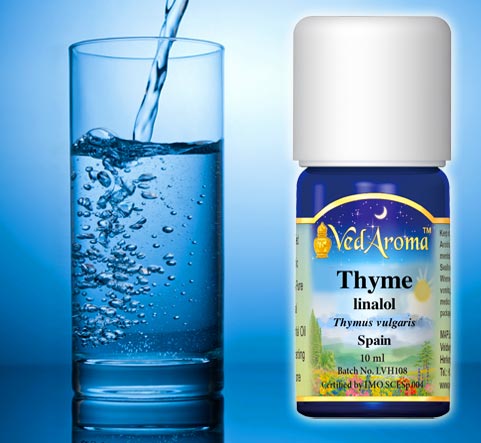
Mouthwash
The antiseptic and antibacterial effect of essential oils can be perfect for freshening the breath and helping to maintain healthy gums, etc. Simply add a few drops of an essential oil to a cup of water and swirl around in the mouth. Do not swallow.
Gargle
Thoroughly mix the essential oil in a teaspoon of honey, then dilute with luke-warm water until the honey is dissolved. Use 1–2 drops per 1 ounce (30 ml) of warm water.
Thyme is one of many oils that can be used for mouthwash or gargle.
Refer to Power of Essential Oils booklet.
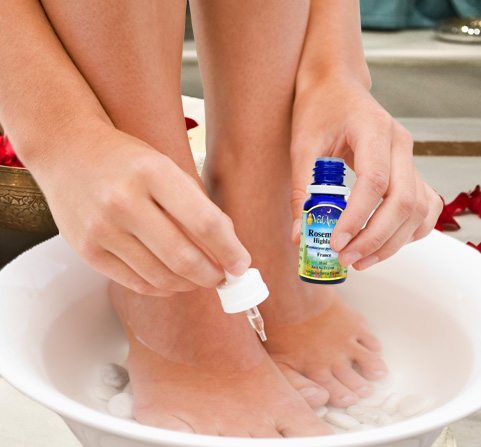
Foot and Hand Bath
Footbaths are a wonderful way to pamper your-self perfect when you do not have time for a full bath. Remember: when your feet feel good, you feel good all over the feet are a very important area in aromatherapy, because their reflex points affect every area of the body, and because the skin on the feet absorbs essential oils rapidly.
Hand baths are a soothing way to enhance circulation and joint health. Use 3-5 drops in a bowl of water. Adjust the temperature of the water to suit your needs; cool water invigorates and energizes, warm water sedates and relaxes.
Rosemary is one of many oils that can be used for a foot or hand bath.
Refer to Power of Essential Oils booklet.
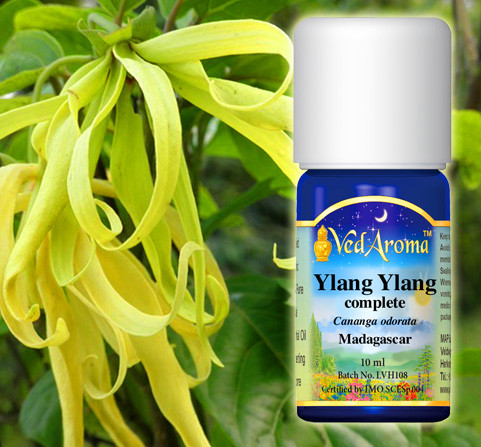
Perfume
Mix 10-20 drops of essential oil in 1 tablespoon of jojoba oil. Apply to one or more of the pulse points behind the ears, underside of the wrist, inner elbow, behind the knees, and on the backs of the ankles.
Ylang Ylang is one of many oils that can be used diluted as perfume.
Refer to Power of Essential Oils booklet.

Add to Cosmetics
Essential oils can be added to pre-made, fragrance-free products. For a facial oil use 2-5 drops of essential oil to 30 ml carrier oil (e.g., almond or jojoba oil). For a facial mask mix clay, healing earth, or oatmeal with water to form a smooth paste and add 2-4 drops of essential oil. Use 10-15 drops per 2 ounces (60 ml) of moisturizer: 20-30 drops per 8 ounces (240 ml) of lotion; 20 drops per 8 ounces of shampoo; and 20–30 drops per 8 ounce of conditioner.
Palmarosa is one of many oils that can be used in cosmetics.
Refer to Power of Essential Oils booklet.
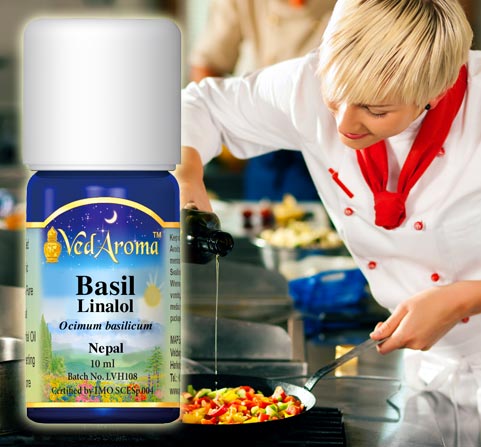
Cooking and Food Flavouring
Use ½-1 drop essential oil for salad dressings, sauces, sweets, and drinks.
Basil is one of many oils that can be used in cooking.
Refer to Power of Essential Oils booklet.
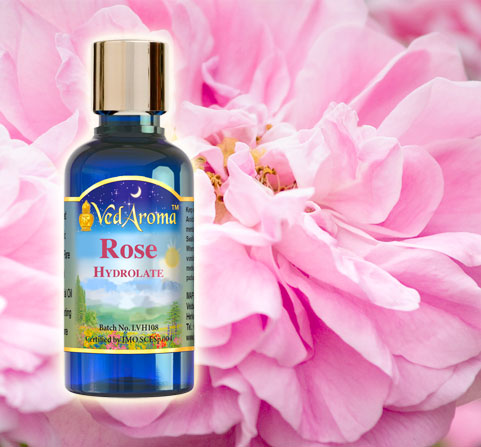
Hydrolates
A true aromatherapy hydrolate (aromatherapy hydrosol) is the water that is collected when plants are steam-distilled for their essential oils. Hydrolates (flower waters and hydrosols) have a delicate nature and a light aroma. They are ideal for situations requiring gentle aromatic care, especially for children, the elderly, the highly sensitive. They do not require dilution and can be applied directly to the skin. Some popular uses are: hydrate and moisturize the skin, refreshing facial toners for all skin types; soothing eye-pads; add to facial masks; flavour natural yoghurt; mist house plants, home fragrance (room sprays).
Rose is one of many hydrolates that can be used for skin care.
Refer to Power of Essential Oils booklet.
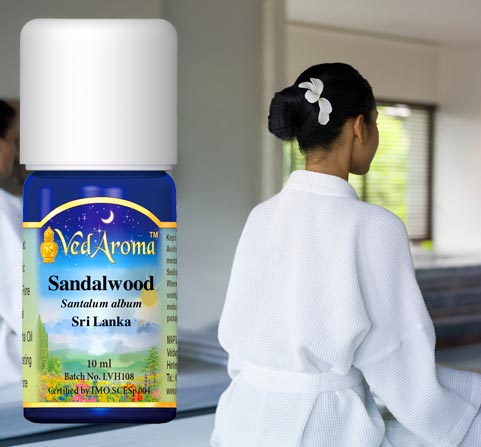
Meditation
Using aromatics for meditation and spiritual focus has been done for thousands of years. Veda Aroma has several oils well suited for this purpose, such as frankincense, patchouli, sandalwood, and myrrh. Diffuse in the meditation environment or put a drop in your hands, rub the hands together, and inhale the aroma.
